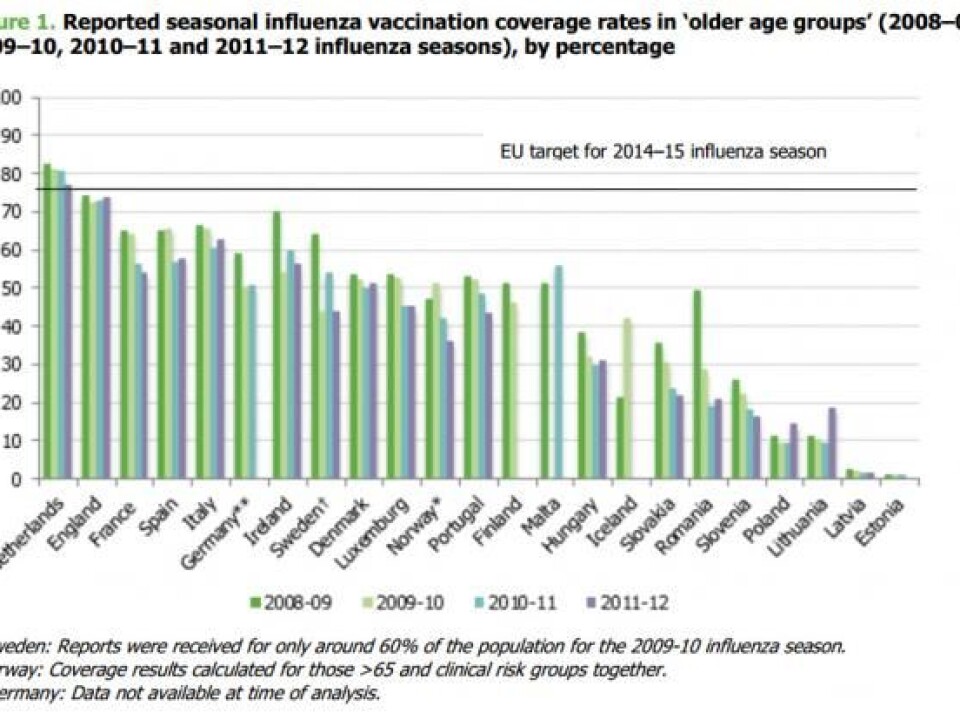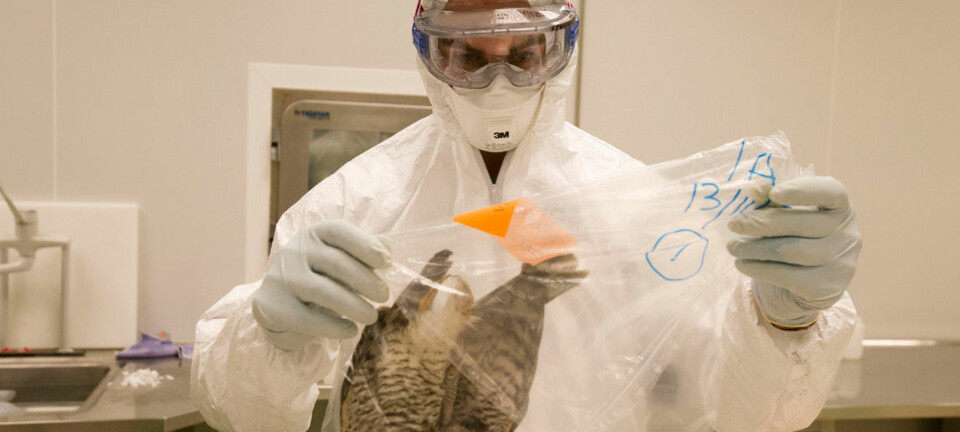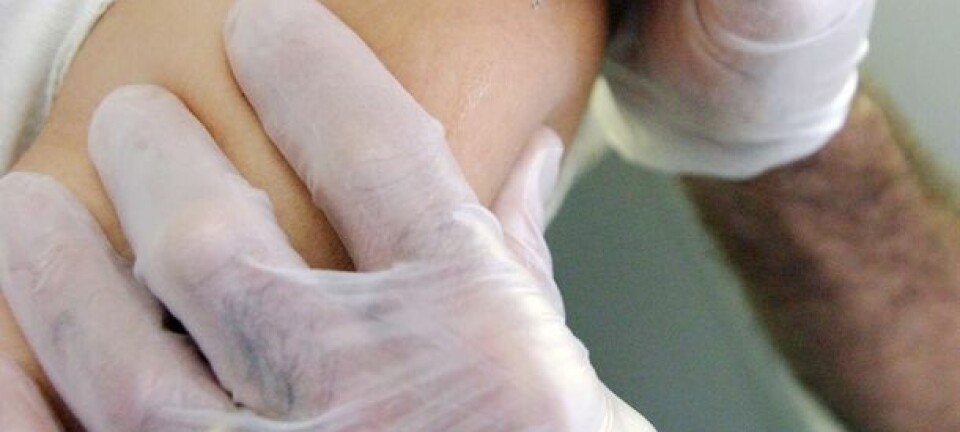
European scientists call for more flu shots
Too few are vaccinated against the flu. Could spell disaster if nothing is done, warns scientists.
Most of us have experienced the flu and luckily it's usually only a passing nuisance. Unfortunately, the flu is more than just a nuisance to people above 65 -- at that age, a runny nose can suddenly become very dangerous.
This is why the European Council in 2009 recommended that a minimum of 75 per cent of the elderly in the Member States should be vaccinated against influenza by 2014-15 -- but according to the European Center for Disease Prevention and Control (ECDC), only a small number of the EU member states have been able to reach this goal.
"This is a disaster," said Dr. Pier Luigi Lopalco, an influenza specialist with ECDC, during his speech at Europe’s biggest influenza conference The European Scientific Working group on Influenza (ESWI) recently held in Riga.
ScienceNordic was there to hear the world’s leading influenza researchers speak at the conference which is held every three years.
Member states are too different

Lopalco said the member countries differ too much in the way they handle the flu. That’s one of the reasons why so many have failed to meet the recommendations, he said.
Only one EU member country, the Netherlands, have succeeded in reaching the recommended target 75 per cent vaccination rate. It’s rather optimistic to think that all countries will reach the goal by next year.
Some European countries offer the vaccine for free to those over 65, while other member states have made vaccination programs where the citizens must pay themselves. That’s a problem, said Lopalco.
Facts
"If more people are to be vaccinated, it requires that the vaccine is made much more accessible," explains Lopalco.
Vaccination is an investment for the future
The varying levels of prioritization in different member states is an equally problematic issue. Unlike many other member states, The Netherlands prioritises vaccinating the elderly.
Marc Sprenger, director for ECDC, expressed hope that more countries would follow in Netherlands suit.
"Vaccination of people in high risk groups like the elderly, pregnant women, and people with chronic diseases should be given priority in the EU countries," said Sprenger, who holds a PhD in the epidemiology of influenza from the Erasmus University in Rotterdam.
Professor Ab Osterhaus, head of the Department of Virology at the Erasmus Medical Center in Rotterdam and president of ESWI, agrees.
“You should see it as an investment to be vaccinated,” he said. “It reduces the risk of getting the flu and it is cheaper for society to pay for a vaccine once a year, than to pay for hospital bills.”
------------
Read the original story in Danish on Videnskab.dk
Translated by: Louisa Field










